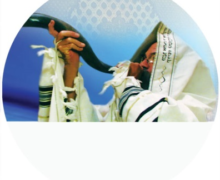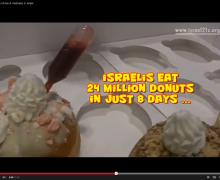CFS Torah Scroll … an answer to prayer!!
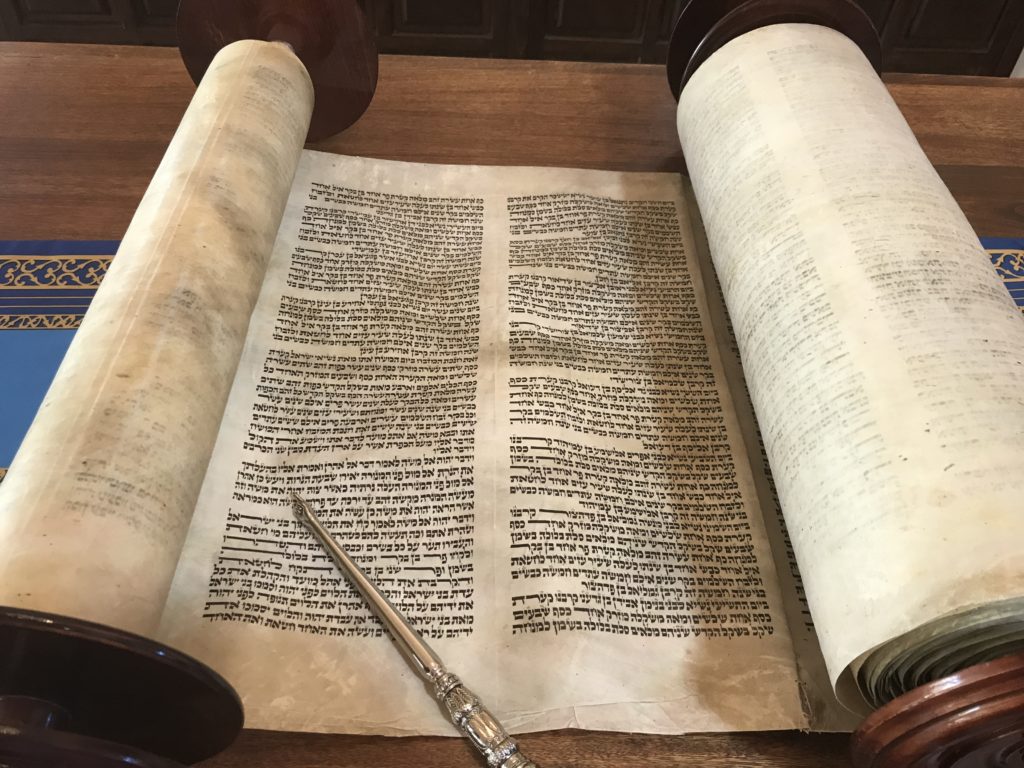
The Torah … an answer to prayer! God has answered!
By Les’a Cole
Each one at CFS faithfully gave … and prayed … and believed!!! And YHVH answered!!!! Thank YOU!!!
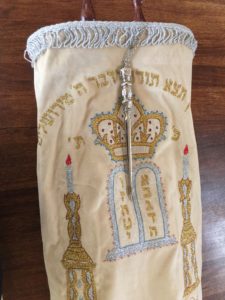
For seventeen months, we, as a congregation, prayed to have our own kosher Torah Scroll (Sefer Torah). We desired a Scroll that had survived the Holocaust. God answered!!! The Scroll to which our LORD led us was written in Romania just as the rumblings of World War II were beginning. Each of the 62 sheets of our Sefer Torah, with its 304,805 letters which form the 79,847 words of the Torah, survived the horrific atrocities of the Nazi regime of WWII.
Under normal circumstances, it takes between one and three years for a Sofer (Torah scribe) to complete a Torah. It can take 45 minutes to write just one line of Scripture!
No doubt as our Scroll was being written, this Sofer experienced concern about the turmoil and rising anti-Semitism in Europe. Picture a people whose lives were shattered during WWII for no reason other than their being Jewish. European Jews lost everything from their families, to their homes & fortunes, to their very physical health. This was the socio-political environment in which our Torah lived its first years.
After the war, the fledging country of Israel purchased and brought many Scrolls to Israel. Ours was among those. For the next 60-some years, our Scroll resided in a Tel Aviv synagogue.
In 2016, our Scroll began its 2nd international voyage. Originally, it traveled from Europe to Israel; and now from Jerusalem, Israel, to Tucson, AZ. (Even as the Scripture states, “for out of Zion [Israel], will come forth the word [the Torah Scroll] of the LORD,” Is 2:3)
We feel honored and blessed our LORD entrusted this living Torah of God into our custodianship! (Obtaining this is so much more, on so many levels, than merely purchasing a new mass-produced Bible. Because every letter in the Torah is hand-crafted with precision and prayer.
Three parts of a Torah Scroll
There are three parts of the Sefer Torah (Torah Scroll): ink, quill, and parchment. Careful attention is made to every single aspect of a Scroll. No part can be from a non-kosher animal.
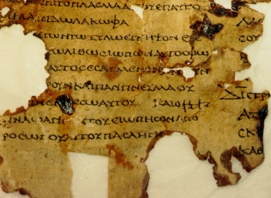
The ink (or brew) is called Dio (liquid darkness) and takes weeks to make. This very special ink is designed to last hundreds even thousands of years (e.g., the clarity of the Dead Sea Scrolls, written between 250 B.C. to 68 A.D., is amazing example of the ink’s ability to still be legible — even after 2000 years!) This ink, made only from kosher animals, does not penetrate the parchment. It sits on top of the parchment and bonds or marries the ink to the parchment.
There are three parts of the Sefer Torah (Torah Scroll): ink, quill, and parchment. Careful attention is made to every single aspect of a Scroll. No part can be from a non-kosher animal.
The ink (or brew) is called Dio (liquid darkness) and takes weeks to make. This very special ink is designed to last hundreds even thousands of years (e.g., the clarity of the Dead Sea Scrolls, written between 250 B.C. to 68 A.D., is amazing example of the ink’s ability to still be legible — even after 2000 years!) This ink, made only from kosher animals, does not penetrate the parchment. It sits on top of the parchment and bonds or marries the ink to the parchment.
The quill (the writing instrument) is the 2nd part. It is made from a kosher bird: often a turkey or a duck. There are 3 cuts in the quill which regulate the flow of ink.
The final part of the Scroll is the parchment, which generally comes from the hide of a cow, or goat, sheep, or deer. Preparing the skin for Torah-use is another highly specialized craft: the skin must be smooth yet supple with no blemishes. Like the ink, it is also designed to last hundreds even thousands of years. (Again, consider the Dead Sea Scrolls’ longevity of 2000 years.) The skin is called “or” (עוֹר), which has the same pronunciation as “light” (אוֹר).
Readying the hide to become a parchment
The hide is first soaked for about a day in order to soften it. Then, it is cleaned, making certain nothing is still attached to the skin – only the hide and the hair. The hide then returns to a basin of water to be washed with soap. After the washing, it goes back into the water basin. This time with lime, etc. and will soak for a week. The hair is removed. Afterward, the hide hangs to dry on hooks 7 to 10 days. Afterward, the hide is folded and stays for about 6 weeks; after which the hide is very dry and crispy. (The drier the leather, the better the Scribe’s ink will adhere.) After this drying period, the skins are then submerged into water and hung on a frame to stretch for 24 hours. The skins are then polished. (This polishing machine reminds me of a dry cleaners’ presser.) Finally, the parchment is ready for the Sofer!
The qualification process to write a Torah Scroll or Mezuzah
The first step to becoming a Sofer is to practice making lines from which the letters will hang. Lines and more lines the apprentices draw; I understand many Sofer apprentices quit at this point because these first steps are extremely tedious; often the Sofer apprentices feel they are not ‘getting anywhere’ during this training.
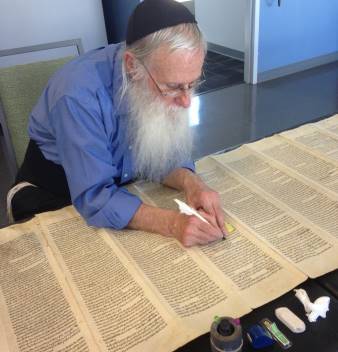
Finally, after approximately one year of meticulously drawing lines and practicing letters, the teacher says the student is now ready write the Megillat Esther (the book of Esther).
(Why does a Sofer begin with the book of Esther? Because the name of God is not mentioned in that book; therefore, the rules for writing this book are more flexible. Writing the name of “God” is very involved. Prior to writing the name of “God”, the Sofer goes into the mikveh and says a special blessing. God’s name is written with a quill and ink used only for writing the Name. Should the Sofer make a mistake in writing God’s name, either that entire sheet of the Scroll must be buried or in some cases a square with the error can be cut out and a new square inserted. Why is it so stringent? Because there can be no errors or mistakes when it comes to God’s name.)
After 3-4 years of continuous and arduous practice plus passing the exam, the apprentice is finally able to write a mezuzah and Torah!
Light vs Dark

In 2015, Don and I had the opportunity to observe Master Sofer (scribe) Rabbi Gedaliah Druin at the University of Arizona refurbish the University’s Scroll. He explained that the “liquid darkness” of the ink marries the “light” of the parchment. (We see this same juxtaposition of light and dark at the Shrine of the Book at the Israel Museum in Jerusalem, where the Dead Sea Scrolls are stored. Outside this museum is a black wall which faces the white museum.) Throughout the Word, we often see this symbolism of dark/black and light/white. (e.g., “The light shines in the darkness,” John 1:15; ‘cloud of darkness by day and pillar of fire by night’, Exodus 13:21-22; etc).
What book do you kiss? Shakespeare?
Rabbi Druin asked those of us in the audience to consider the following. And I also encourage you to personally ponder the questions he posed to us: ‘What book do you cradle? Do you cradle a book of Shakespeare?’ ‘What book do you kiss?’ ‘What book do you ‘dress’?’ ‘Do you give it an “apartment” (the Ark)? ‘Do you build it a “house” (a synagogue or house of worship)?’ Only the Torah!
The Torah is not a book; it is an instrument, a living instrument!! He also mentioned that in some ways, a Torah is not so different from a cell phone. To get maximum benefit, we must learn how to use and care for each of them. You are able to search for information on them. However, only the Word speaks to you [your heart].”
Raise the Torah to a higher place in our lives
As a believer, I have fallen more in love with His Word; my reverence and appreciation for His Word is far deeper than it was even yesterday. God’s Word is living – it is much more than a mere book – it is God’s instrument of love; His instruction for us! We cherish the Bible (and the Sefer Torah) above every other book; we handle it with care; we revere it. And the light of His Word overpowers the darkness around us.
Let’s each day make more of a concerted effort to raise the Torah to a higher place in our lives.

